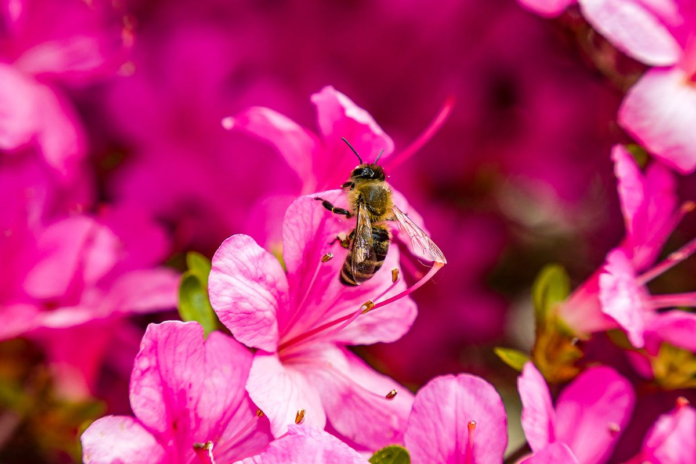Pesticides are slowly wiping bees off the face of the Earth, yet scientists are still unable to come up with evidence-based ways to protect them. That isn’t for a lack of trying — many different tactics are being trialed, but widespread success remains elusive. And this problem is severe, given that many of our agricultural food products — from apples to pumpkins to cucumbers — rely on pollinators like bees. Losing bees could trigger mass starvation throughout the world, to say nothing of the devastating effect such a casualty would have on global ecosystems.
In a recent report in the Journal of Economic Entomology, Edward Straw and Dara Stanley, both researchers at University College Dublin, analyzed as many studies as they could find about whether bees are adequately protected from pesticides. They focused specifically on mitigation measures, or actions followed by pesticide users to limit how much of the chemicals reach unintended targets.
The study includes a chart of mitigation methods that have at least been tested through published studies, regardless of their quality. At first glance, only one category of mitigation measure appeared to be thoroughly covered: repellents, or techniques used to repel bees from visiting crops recently treated with pesticides. While other strategies like alternative food sources or killing weeds to discourage bees from feeding nearby had only been tested in seven or fewer published studies, there were 12 published studies on repellent chemicals that could presumably reduce exposure. A dozen studies seemed to be a lot — right?



